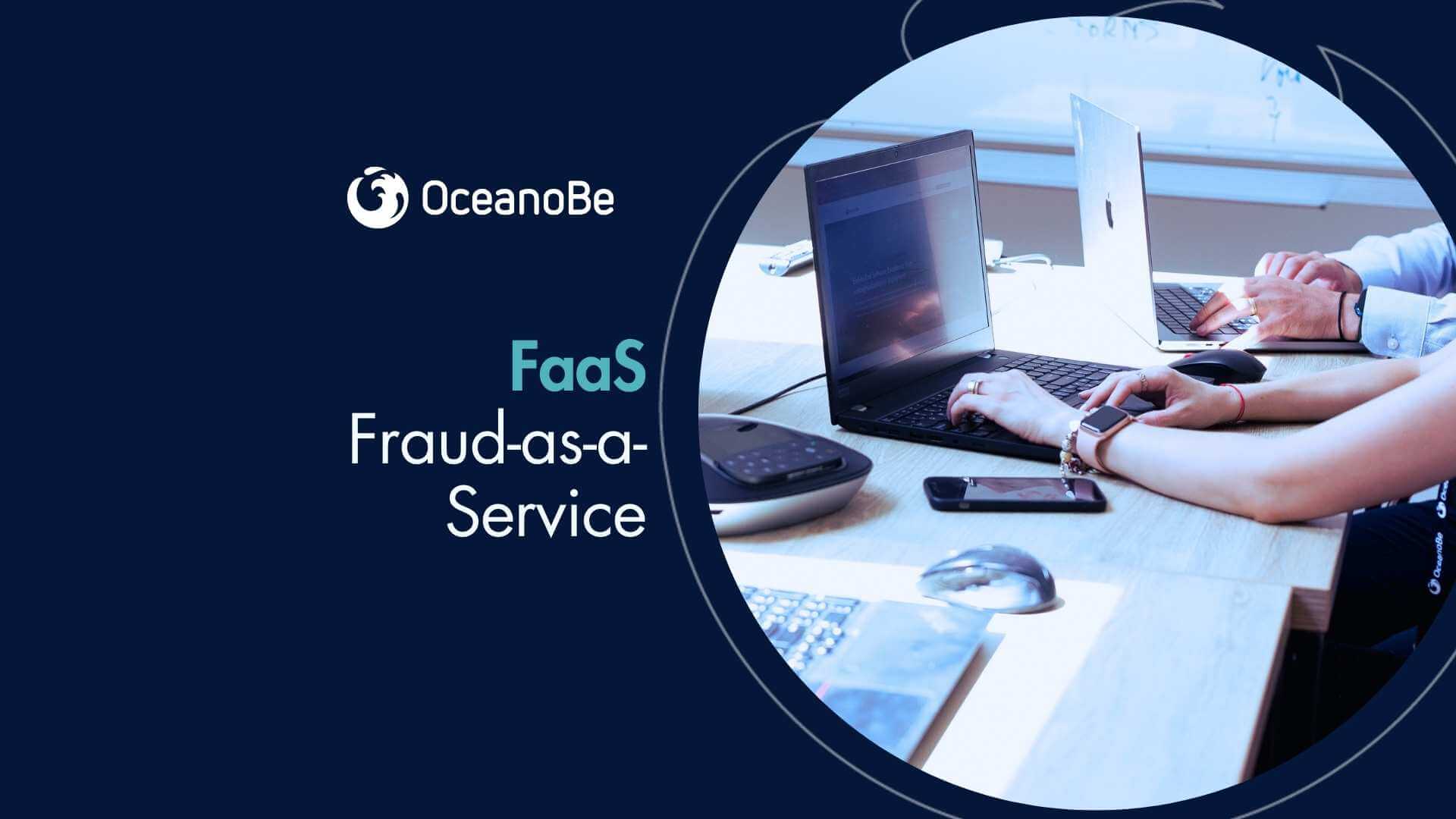Fraud-as-a-Service
The Industrialization of Financial Crime and How OceanoBe Can Help
The Industrialization of Financial Crime and How OceanoBe Can Help

Fraud-as-a-Service (FaaS) is an emerging cybercrime model where malicious actors offer tools and services—such as phishing kits, stolen credentials, and botnets—to facilitate fraudulent activities for paying clients. This underground industry enables cybercriminals to offer tools, services, and expertise to commit fraud on behalf of paying clients, making fraud accessible to a broader range of malicious actors.
FaaS operates similarly to legitimate Software-as-a-Service (SaaS) models, providing clients with ready-made tools and services to execute fraudulent activities. These offerings can include phishing kits, stolen credentials, botnets, and even customer support for aspiring fraudsters. By lowering the barrier to entry, FaaS has industrialized financial crime, allowing even those with minimal technical skills to perpetrate complex fraud schemes.
This commoditization of fraud makes undelines the necessity for fintech institutions to combat the threats posed by FaaS. Tech partners can build a strong anti-fraud approch by implementing a multifaceted strategy based on:
AI-Powered Fraud Detection: Make use of the machine learning algorithms to analyze transaction patterns and user behaviors in real-time, to enable the identification and prevention of fraudulent activities.
Advanced Identity Verification: Implement robust identity verification measures, including biometric authentication and document verification, to ensure that users are who they claim to be.
Behavioral Analytics: Monitor user interactions to detect anomalies that may indicate fraudulent behavior, such as unusual login times or transaction patterns.
Secure Middleware Solutions: Develop middleware that securely connects legacy systems with modern applications, ensuring data integrity and reducing potential vulnerabilities.
Regulatory Compliance Support: Provide the core systems, tools and frameworks that help financial institutions adhere to regulatory requirements, thereby minimizing the risk of non-compliance penalties.
By integrating these solutions, fintech companies can offer comprehensive protection against the evolving landscape of financial fraud, safeguarding both institutions and their customers.
The proliferation of FaaS poses significant challenges to banks and fintech companies:
Increased Fraud Incidents: With tools readily available, there's a surge in fraudulent activities, including account takeovers, payment fraud, and identity theft.
Financial Losses: Institutions face substantial monetary losses due to unauthorized transactions and chargebacks.
Reputational Damage: Frequent fraud incidents erode customer trust, impacting brand reputation and customer retention.
Regulatory Scrutiny: Failure to prevent fraud can lead to regulatory penalties and increased compliance requirements.
At OceanoBe, we understand the evolving nature of financial fraud and offer comprehensive solutions to help institutions stay ahead. We architect solutions based on advanced fraud detection systems and we use secure CI/CD pipelines to make sure that software delivery processes are fortified against potential vulnerabilities that could be exploited by fraudsters.
Our middleware solutions integrate legacy systems with modern applications securely, reducing potential entry points for malicious actors. Moreover, we offer regulatory compliance support by assisting institutions in meeting compliance requirements, thereby minimizing the risk of penalties associated with fraud incidents.
The rise of Fraud-as-a-Service signifies a paradigm shift in the threat landscape for financial institutions. As fraud becomes more commoditized, banks and fintech companies must adopt proactive and robust measures to safeguard their operations and customers. OceanoBe is committed to providing the tools and expertise necessary to navigate this challenging environment and maintain the integrity of financial systems.